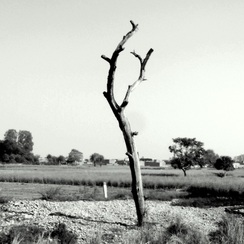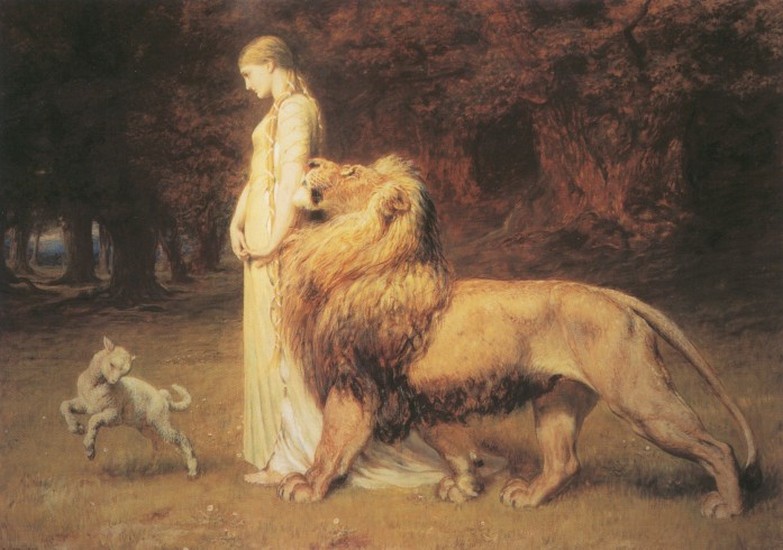ISSN: 0974-3057
The Enchanting Verses Literary Review
Issue-XIX November 2013
The Enchanting Verses Literary Review
Issue-XIX November 2013
Click on the painting above to download the issue.Downloading may take a few minutes.
ISSUE XIX dedicated to Edmund Spenser
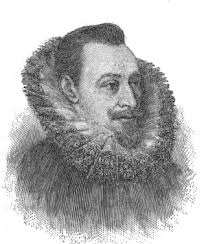
Edmund Spenser was born in East Smithfield, London around the year 1552 though there is some ambiguity as to the exact date of his birth. As a young boy, he was educated in London at the Merchant Taylors' School and matriculated as a sizar at Pembroke College, Cambridge. While at Cambridge he became a friend of Gabriel Harvey, and later consulted him, despite their differing views on poetry.
In July 1580 Spenser went to Ireland, in the service of the newly appointed Lord Deputy, Arthur Grey, 14th Baron Grey de Wilton. Then he served with the English forces during the Second Desmond Rebellion. After the defeat of the native Irish he took lands in County Cork that had been confiscated in the Munster Plantation during the Elizabethan conquest of Ireland. Among his acquaintances in the area was Walter Raleigh, a fellow colonist.
Through his poetry Spenser hoped to secure a place at court, which he visited in Raleigh's company to deliver his most famous work, The Faerie Queene. However, he boldly antagonised the queen's principal secretary, Lord Burghley, and all he received in recognition of his work was a pension in 1591. When it was proposed that he receive payment of 100 pounds for his epic poem, Burghley remarked, "What, all this for a song!"
In 1596 Spenser wrote a prose pamphlet titled, A View of the Present State of Ireland. This piece remained in manuscript until its publication and print in the mid-seventeenth century. It is probable that it was kept out of print during the author's lifetime because of its inflammatory content. The pamphlet argued that Ireland would never be totally 'pacified' by the English until its indigenous language and customs had been destroyed, if necessary by violence. Spenser recommended scorched earth tactics, such as he had seen used in the Desmond Rebellions, to create famine. Although it has been highly regarded as a polemical piece of prose and valued as a historical source on 16th century Ireland, the View is seen today as genocidal in intent. Spenser did express some praise for the Gaelic poetic tradition, but also used much tendentious and bogus analysis to demonstrate that the Irish were descended from barbarian Scythian stock.
Two of Ireland's historians of the early modern period, Ciaran Brady and Nicholas Canny, have differed in their view of Spenser's View of the State of Ireland. Brady’s essential proposition is that Spenser wished the English government to undertake the extermination of most of the Irish population. He writes that Spenser preferred to write in dialogue form so that the crudity of his proposals would be masked. Canny undermines Brady's conclusion that Spenser opted for “a holocaust or a “blood-bath”, because despite Brady's claims Spenser did not choose the sword as his preferred instrument of policy. Canny argues that Spenser instead chose not the extermination of the Irish race but rather a policy of ‘social reform pursued by drastic means’. Canny's ultimate assertion was that Brady was over-reacting and that Spenser did not propose a policy to exterminate the Irish race.
However, within one page he moves on to argue that no ‘English writer of the early modern period ever proposed such a drastic programme in social engineering for England, and it was even more dramatic than Brady allows for because all elements of the Irish population including the Old English of the towns, whom Brady seems to think were exempt were subject to some element of this scheme of dispersal, reintegration and re-education’. Here, Canny argues that this policy was more ‘dramatic than Brady allows’, in that Brady’s description was one of ‘bloodshed’, ‘extermination’ and ‘holocaust’ only of the native Irish but Canny’s was one of dispersal, reintegration and re-education of both the native Irish and the settler English. Even though Canny writes that ‘substantial loss of life, including loss of civilian life, was considered by Spenser', he considers that that falls short of Brady's conclusion.
Later on, during the Nine Years War in 1598, Spenser was driven from his home by the native Irish forces of Aodh Ó Néill. His castle at Kilcolman, near Doneraile in North Cork was burned, and it is thought one of his infant children died in the blaze – though local legend has it that his wife also died. He possessed a second holding to the south, at Rennie, on a rock overlooking the river Blackwater in North Cork. The ruins of it are still visible today. A short distance away grew a tree, locally known as "Spenser's Oak" until it was destroyed in a lightning strike in the 1960s. Local legend has it that he penned some or all of The Faerie Queene under this tree.
In the year after being driven from his home, Spenser travelled to London, where he died in distressed circumstances (according to legend), aged forty-six. It was arranged for his coffin to be carried by other poets, upon which they threw many pens and pieces of poetry into his grave with many tears.
In July 1580 Spenser went to Ireland, in the service of the newly appointed Lord Deputy, Arthur Grey, 14th Baron Grey de Wilton. Then he served with the English forces during the Second Desmond Rebellion. After the defeat of the native Irish he took lands in County Cork that had been confiscated in the Munster Plantation during the Elizabethan conquest of Ireland. Among his acquaintances in the area was Walter Raleigh, a fellow colonist.
Through his poetry Spenser hoped to secure a place at court, which he visited in Raleigh's company to deliver his most famous work, The Faerie Queene. However, he boldly antagonised the queen's principal secretary, Lord Burghley, and all he received in recognition of his work was a pension in 1591. When it was proposed that he receive payment of 100 pounds for his epic poem, Burghley remarked, "What, all this for a song!"
In 1596 Spenser wrote a prose pamphlet titled, A View of the Present State of Ireland. This piece remained in manuscript until its publication and print in the mid-seventeenth century. It is probable that it was kept out of print during the author's lifetime because of its inflammatory content. The pamphlet argued that Ireland would never be totally 'pacified' by the English until its indigenous language and customs had been destroyed, if necessary by violence. Spenser recommended scorched earth tactics, such as he had seen used in the Desmond Rebellions, to create famine. Although it has been highly regarded as a polemical piece of prose and valued as a historical source on 16th century Ireland, the View is seen today as genocidal in intent. Spenser did express some praise for the Gaelic poetic tradition, but also used much tendentious and bogus analysis to demonstrate that the Irish were descended from barbarian Scythian stock.
Two of Ireland's historians of the early modern period, Ciaran Brady and Nicholas Canny, have differed in their view of Spenser's View of the State of Ireland. Brady’s essential proposition is that Spenser wished the English government to undertake the extermination of most of the Irish population. He writes that Spenser preferred to write in dialogue form so that the crudity of his proposals would be masked. Canny undermines Brady's conclusion that Spenser opted for “a holocaust or a “blood-bath”, because despite Brady's claims Spenser did not choose the sword as his preferred instrument of policy. Canny argues that Spenser instead chose not the extermination of the Irish race but rather a policy of ‘social reform pursued by drastic means’. Canny's ultimate assertion was that Brady was over-reacting and that Spenser did not propose a policy to exterminate the Irish race.
However, within one page he moves on to argue that no ‘English writer of the early modern period ever proposed such a drastic programme in social engineering for England, and it was even more dramatic than Brady allows for because all elements of the Irish population including the Old English of the towns, whom Brady seems to think were exempt were subject to some element of this scheme of dispersal, reintegration and re-education’. Here, Canny argues that this policy was more ‘dramatic than Brady allows’, in that Brady’s description was one of ‘bloodshed’, ‘extermination’ and ‘holocaust’ only of the native Irish but Canny’s was one of dispersal, reintegration and re-education of both the native Irish and the settler English. Even though Canny writes that ‘substantial loss of life, including loss of civilian life, was considered by Spenser', he considers that that falls short of Brady's conclusion.
Later on, during the Nine Years War in 1598, Spenser was driven from his home by the native Irish forces of Aodh Ó Néill. His castle at Kilcolman, near Doneraile in North Cork was burned, and it is thought one of his infant children died in the blaze – though local legend has it that his wife also died. He possessed a second holding to the south, at Rennie, on a rock overlooking the river Blackwater in North Cork. The ruins of it are still visible today. A short distance away grew a tree, locally known as "Spenser's Oak" until it was destroyed in a lightning strike in the 1960s. Local legend has it that he penned some or all of The Faerie Queene under this tree.
In the year after being driven from his home, Spenser travelled to London, where he died in distressed circumstances (according to legend), aged forty-six. It was arranged for his coffin to be carried by other poets, upon which they threw many pens and pieces of poetry into his grave with many tears.
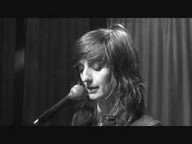
Enchanting Poet: Amy King
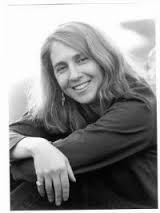
Editor's Choice: Aliki Barnstone
Poets
|
Amy King (Page(s): 3-6)
Todor Chalovski (Page(s): 7) Aliki Barnstone (Page(s): 8-9) Ambika Talwar (Page(s): 10) Rohith Sundararaman (Page(s): 11) Brad Henderson (Page(s): 12-13) Karen Carissimo (Page(s): 14) Donna Baier Stein (Page(s): 15) |
Doug Anderson (Page(s): 15)
Aparna Mukhedkar (Page(s): 16) Jon Tribble (Page(s): 17) Patricia Jabbeh Wesley (Page(s): 18-19) Ron Starbuck (Page(s): 20) Lola Koundakjian (Page(s): 21) Ami Kaye (Page(s): 22) |
Articles & Reviews
On Poetry & Poets by Abhay K. (Pages: 23-28)
Review of "Dreaming my Animal Selves by Helene Cardona"
(Salmon Poetry) (Review by Sonnet Mondal) (Pages:29-30)
Poetry of Kamla Das –A True Voice Of Bourgeoisie Women In India
by Dr.Shikha Saxena (Pages:31-34)
The Dance of the Peacock: An Anthology of English Poetry from India
Edited by Dr. Vivekanand Jha, 2013. Hidden Brook Press
(Review by Rob Harle) (Pages:35-36)
Review of "Dreaming my Animal Selves by Helene Cardona"
(Salmon Poetry) (Review by Sonnet Mondal) (Pages:29-30)
Poetry of Kamla Das –A True Voice Of Bourgeoisie Women In India
by Dr.Shikha Saxena (Pages:31-34)
The Dance of the Peacock: An Anthology of English Poetry from India
Edited by Dr. Vivekanand Jha, 2013. Hidden Brook Press
(Review by Rob Harle) (Pages:35-36)
©2013 The Enchanting Verses Literary Review
NO PART OF THE CONTENTS OF THE ISSUE-XIX OR THE WEBSITE CAN BE COPIED FOR COMMERCIAL OR OTHER PURPOSES WITHOUT THE WRITTEN PERMISSION OF THE ENCHANTING VERSES LITERARY REVIEW
